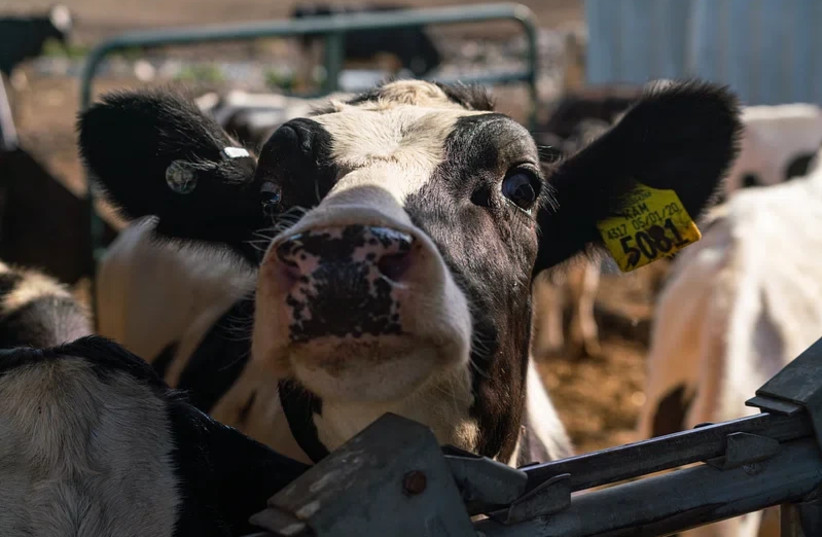A comprehensive study of foot and mouth disease (FMD) among cattle, sheep, and goats in Israel and surrounding areas by Hebrew University of Jerusalem researchers highlights repeated incursions of the virus, despite routine vaccination efforts.
Their analysis, which shows a pattern of transmission, disclosed that FMD is not endemic in Israel but rather is periodically reintroduced from neighboring countries and the Palestinian Authority. It also suggests the importance of the beef cattle and small ruminant sectors, which are also less adequately vaccinated against the epidemic spread of the FMD virus.
The study, just published in the journal Science Direct under the title, “Foot and mouth disease viruses are recurrently introduced to Israel and spread by extensively reared sheep and cattle: Insights from a whole-genome sequence analysis,” was led by Prof. Eyal Klement, from Hebrew University’s Koret School of Veterinary Medicine, and Dr. Sharon Karniely, from the Agriculture and Rural Development Ministry’s Kimron Veterinary Institute.
The findings indicate a pattern of repeated FMD virus incursions, emphasizing the need for a more targeted and collaborative approach to disease management. The results indicate a potential transmission route from the PA to Israel, underscoring the importance of cross-border cooperation in disease-control efforts.
“We believe that a targeted approach focusing on extensive farms, coupled with improved surveillance and vaccination efforts, could significantly enhance our control over FMD,” Klement said. “FMD incursions in disease-free regions have significant socioeconomic impacts.”

A shared interest between Israel and the PA
FMD is a highly contagious viral infection affecting hoofed animals and is caused by the FMD virus with seven known serotypes. The virus’s high mutation rate leads to diverse genetic lineages and topotypes (specimens of a species collected at the locality at which the original type was obtained).
Their findings suggested that the management of FMD outbreaks in Israel could benefit from a “change of effort allocation among the various control measures.”
More effort must be allocated by the government to vaccination and surveillance of extensive beef cattle and small ruminant farms, thus increasing vaccine coverage among these sectors, the researchers wrote.
“In addition, the high transmission rate between the Palestinian Authority and Israel suggests that preventing FMD in both areas is of high interest for both of them.”
A genomic analysis in 2007 of the FMD epidemic in Israel, which was caused by a serotype O virus, revealed predominant transmission among extensively farmed beef cattle and small ruminants (mammals that chew the cud). Small ruminants were identified as key contributors in transmitting the virus to beef cattle, which subsequently spread it to feedlot cattle living in a confined area for feeding steers and heifers a mix of grain, silage, hay, and protein supplements.
FMD viruses are recurrently introduced to Israel and spread by large numbers of sheep and cattle. The authors called for a “collaborative, targeted approach involving improved surveillance, vaccination efforts, and cross-border cooperation to control and prevent the spread of FMD.”
They stressed the necessity for unified strategies among policy-makers, veterinarians, and farmers across the region to effectively combat FMD and reduce its economic and agricultural consequences.
